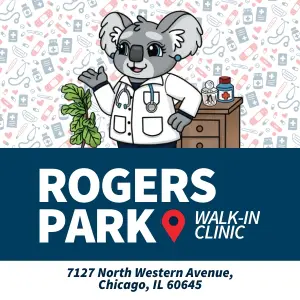Thyroid Awareness Month – Hypothyroidism 101
Every January, the American Thyroid Association promotes Thyroid Awareness Month, which aims to educate the public about the importance of managing and monitoring thyroid health. In the United States, about 20 million people have some form of thyroid condition, yet 60% of them don’t know it because they don’t have prominent symptoms. One of the most common thyroid diseases is hypothyroidism, which affects about 5% of Americans. Read on to learn more about hypothyroidism and how you can stay on top of your thyroid health.
What is the role of the thyroid gland?
Located in the middle of the lower neck region, the thyroid is a small butterfly-shaped gland that produces hormones essential for the body’s growth and development. The thyroid gland also produces hormones that regulate metabolism, energy levels and even heart rate. Though the thyroid gland is small, the hormones it produces directly influence every cell, tissue and organ in the body.
What is hypothyroidism?
Hypothyroidism occurs when the thyroid gland is not producing enough thyroid hormones, causing many of the body’s functions and processes to slow down. Symptoms can include:
- Fatigue
- Slowed heart rate
- Muscle pain
- Thinning hair
- Weight gain
- Decreased mood or depression
- Heavy or irregular menstrual periods or infertility
Hypothyroidism affects 1 in 300 Americans annually. Women are eight to nine times more likely to develop the condition than men. High risk groups for hypothyroidism include those over 60, those with a family history of hypothyroidism and those who have had a previous thyroid issue, such as a goiter. Other risk factors of hypothyroidism include Type 1 or 2 diabetes, lupus and autoimmune diseases such as pernicious anemia or rheumatoid arthritis.
How is hypothyroidism diagnosed and treated?
The symptoms of hypothyroidism can be hard to identify, so blood tests are needed to confirm the condition. These tests measure the amount of thyroid stimulating hormone (TSH) and other thyroid hormones, such as T3 and T4, in the patient’s blood sample. After a positive diagnosis, a physician will likely prescribe levothyroxine, a medication that works to boost the levels of TSH in patients with hypothyroidism. Patients report an improvement in their symptoms as early as two weeks after beginning the medication, and your physician will monitor the medication’s effectiveness through routine TSH blood tests.
Early detection is key in treating hypothyroidism. When detected and treated promptly, hypothyroidism can be effectively managed, and potential damage to other organs, including the heart, can likely be avoided. That’s why those who are at risk of hypothyroidism and pregnant women should get a TSH blood test as soon as possible to stay on top of any potential thyroid issues.
For help diagnosing or treating hypothyroidism or another thyroid condition, visit your nearest Midwest Express Clinic location today.




